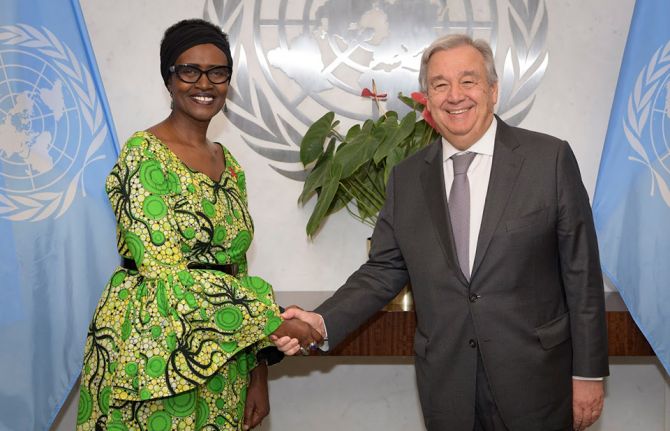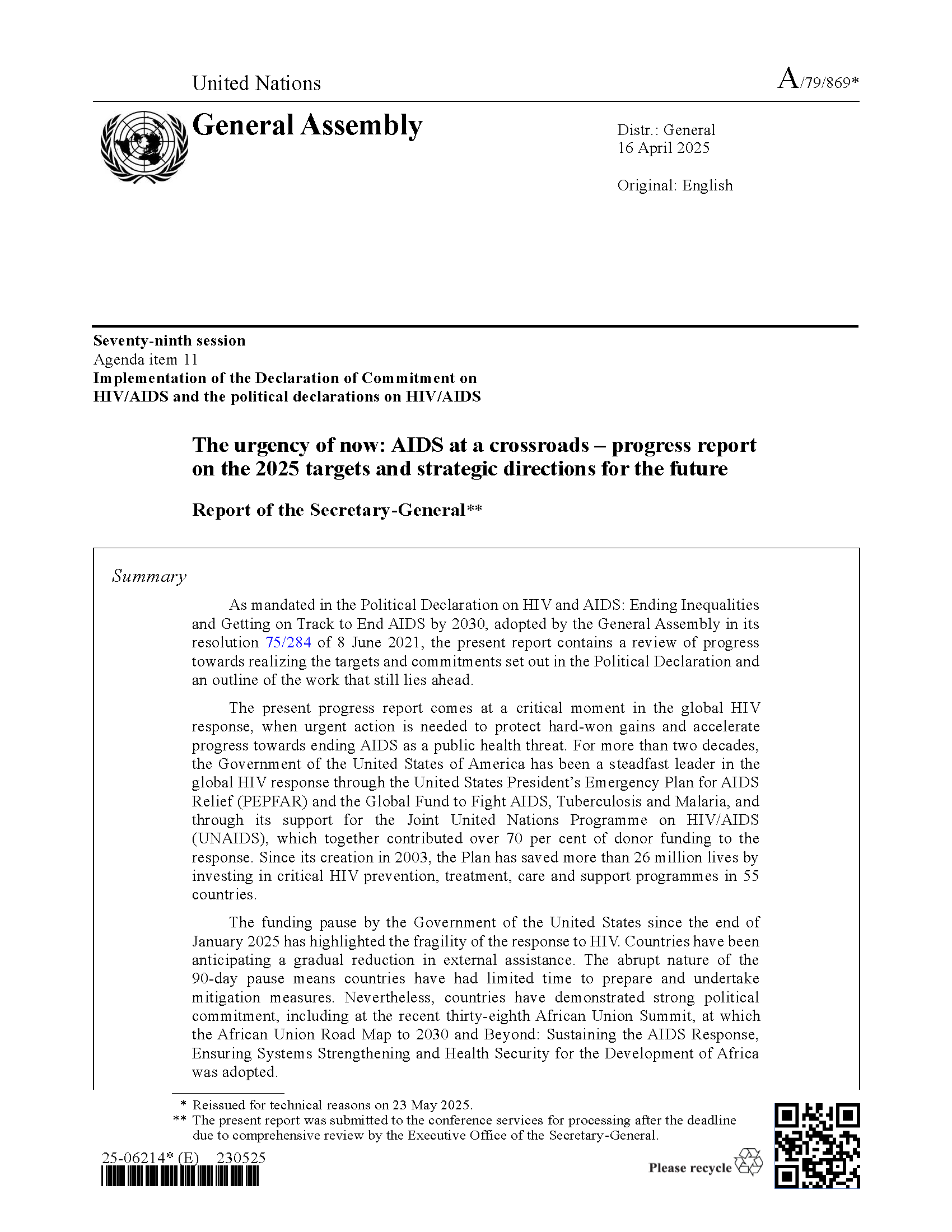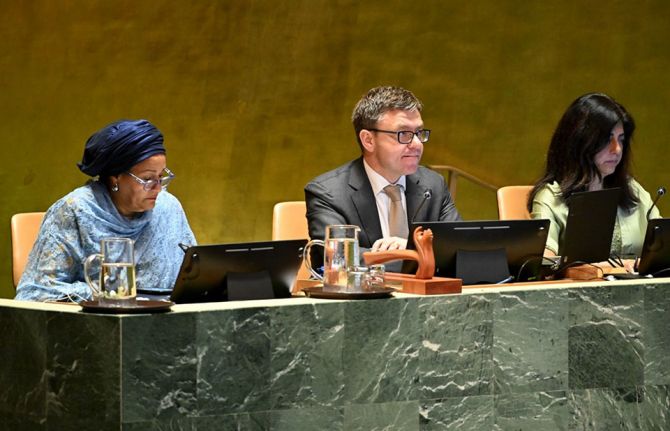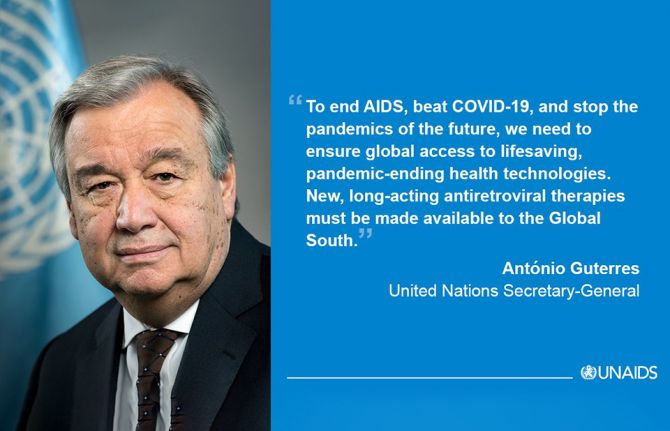

Feature Story
United Nations Secretary-General’s report on HIV
28 May 2025
28 May 2025 28 May 2025The United Nations Secretary-General António Guterres will present his report on HIV to the 79th United Nations General Assembly at the UN in New York on 5 June 2025.
The report, The urgency of now: AIDS at a crossroads – progress report on the 2025 targets and strategic directions for the future, contains a review of progress towards realizing the targets and commitments set out in the 2021 Political Declaration on HIV/AIDS and an outline of the work that still lies ahead.
It comes at a critical moment in the global HIV response, when urgent action is needed to protect the hard-won gains and accelerate progress towards ending AIDS as a public health threat.
UNAIDS has been supporting countries to gradually reduce their reliance on external assistance.
The current Global AIDS Strategy 2021–2026 has led the HIV response with a bold vision of ending inequalities that continue to fuel the epidemic. The midterm review of the Strategy, published as part of the annual Global AIDS Update in July 2024, highlighted key achievements and remaining challenges to inform the development of the next phase of the response.
Under the current strategy, fewer people acquired HIV in 2023 than at any point since the late 1980s. Over 30 million people were receiving life-saving antiretroviral therapy, reducing AIDS-related deaths to their lowest level since the peak of 2004. Significant gains have been made in sub-Saharan Africa, underscoring the power of existing interventions to end AIDS as a public health threat by 2030. As the United Nations approaches its eightieth anniversary, the results of the HIV response stand as a powerful testament to the impact of multilateral action and must be protected.
Amid recent challenges and the fragility of the HIV response, the world is falling behind in achieving the 2025 HIV targets. Obstacles to accessing treatment, insufficient prevention programming, a failure to adequately support the work of communities, rising inequalities and a lack of political will and financial support threaten the response.
The next Global AIDS Strategy, for the period 2026–2031, led by UNAIDS, is being developed at a time when the response to the HIV epidemic is at a crossroads. The strategy will be among the most important in 40 years of response to the pandemic. Developed in a context of instability for many countries, in particular with regard to HIV-related funding, the strategy will be crucial for accelerating the achievement of the 2030 Agenda for Sustainable Development and setting the foundation for a sustainable response to HIV post-2030.
This report is also available in Arabic, Chinese, French, Russian and Spanish.



